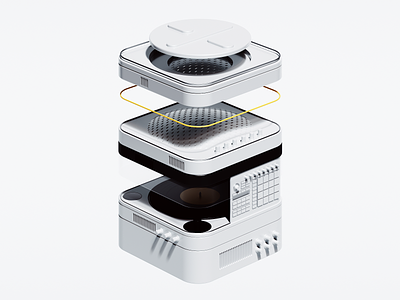Put together To Laugh: Sound System For A Car Will not be Harmless As you Would possibly Suppose. Take a look at These Great Examples
These controls include air conditioning, navigation systems, on-board computers, in-car entertainment, windscreen wiper, and touchscreen panels. The Saab B 17 dive bomber and Vought F4U Corsair fighter used the deployed undercarriage as an air brake. Freewheeling was retained in the four-stroke variant, until the end of production and in the Saab 99 with the 1709 cc Triumph engine. There is usually also a parking brake which operates the rear brakes only (or less commonly, the front brakes only, as in the Saab 99 and in the Citroën Xantia). Wheel speed sensors mounted on the front and rear wheel constantly measures the rotational speed of each wheel and delivers this information to an Electronic Control Unit (ECU). With the freewheel, a coasting engine could reduce its speed to idling, thus requiring only the small lubrication available from the closed, coasting, throttle. Unlike modern throttle pedals this could be raised to accelerate the car or depressed to slow it, "and thus quick accelerations or retardations can be effected" without interfering with the governed speed set using the hand control.
 In Formula One auto racing, many vehicle parameters can be set by the driver during a race. With these modifications, the body of the car can be raised by remote control. Early cars had a hand lever to control the throttle, either directly, or by controlling an engine speed governor which in turn controlled both the throttle and timing. This type of control has now returned with the use of keyless entry. Disabling the anti-theft system is usually done by requiring identification of the owner at some stage of use. This system offers a fast reaction time because of the brake by wire functionality. It looks to me that in any given industry that over time we see fewer and fewer major players… But while safety standards like the ISO 26262 specify the required safety, it is still a burden on the industry to demonstrate acceptable safety. Ultimately standards governed minimum and maximum permissible intensity levels, minimum horizontal and vertical angles of visibility, and minimum illuminated surface area, to ensure that they are visible at all relevant angles, do not dazzle those who view them, and are suitably conspicuous in all conditions ranging from full darkness to full direct sunlight.
In Formula One auto racing, many vehicle parameters can be set by the driver during a race. With these modifications, the body of the car can be raised by remote control. Early cars had a hand lever to control the throttle, either directly, or by controlling an engine speed governor which in turn controlled both the throttle and timing. This type of control has now returned with the use of keyless entry. Disabling the anti-theft system is usually done by requiring identification of the owner at some stage of use. This system offers a fast reaction time because of the brake by wire functionality. It looks to me that in any given industry that over time we see fewer and fewer major players… But while safety standards like the ISO 26262 specify the required safety, it is still a burden on the industry to demonstrate acceptable safety. Ultimately standards governed minimum and maximum permissible intensity levels, minimum horizontal and vertical angles of visibility, and minimum illuminated surface area, to ensure that they are visible at all relevant angles, do not dazzle those who view them, and are suitably conspicuous in all conditions ranging from full darkness to full direct sunlight.
This means that the computer will make small adjustments to different parts of the engine and different systems in order to adapt to varying environmental conditions and to the way you, specifically, drive your car. The first documented custom car with Hydraulics was in 1958 when Jim Logue of Long Beach California installed them in his custom 1954 Ford the “Fab X”. The desire for driver convenience led to the widespread implementation of the now-popular hydraulic automatic transmission design in the 1940s, followed by the first mass-production continuously variable transmission (CVT), the Variomatic, in 1958. Automatic transmission with manumatic (manual) gear shifting controls started to appear on mass-production cars in the early-1990s, starting with Porsche's Tiptronic system. They may also be located and operated differently in other road vehicles such as motorcycles, where the throttle is controlled by a hand lever and the gear shift is operated by a pedal. Heavier road vehicles, as well as trains, usually boost brake power with compressed air, supplied by one or more compressors.
The cylinders are used to establish compression pressure of the oil, fluid being supplied by the pump, to push the automobile up. Based on this output a motor for each wheel operates a pump that builds up and regulates the brake pressure on the wheel. Most recent models regulate the pressure by rapidly opening and closing solenoid valves. Packard in 1899, and by 1908 were on most models. The placement of the instruments can vary. Clearcoat can be either solvent or water-borne. The steering wheel was first used when Alfred Vacheron competed in the 1894 Paris-Rouen motor race in a Panhard et Levassor. In 1962 the first Chevrolet Impala to feature hydraulics debuted, Tats Gotanda’s 1959 Impala the “Buddha Buggy” which featured hydraulics by Bill Hines. This was a feature added because of the limited lubrication in the two-stroke engine. Some other historical engine controls, which are automated in modern passenger cars, were the choke valve, ignition timing, and spark arrestor. Modern car paints are nearly always an acrylic polyurethane "enamel" with a pigmented basecoat and a clear topcoat. In modern cars the four-wheel braking system is controlled by a pedal to the left of the accelerator pedal.
Comments
Post a Comment